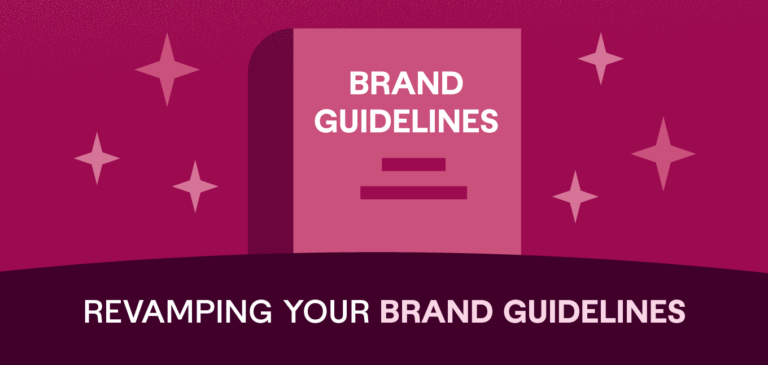What is niche marketing? Niche marketing is the strategy of precisely defining one or more small segments within a larger customer market, and targeting marketing efforts (messaging, spokespeople, distribution) specifically to the needs and preferences of those segments.
While niche marketing is based around differentiating customer groups and targeting marketing efforts specifically toward those groups, it does not mean that niche marketing is for small budgets, small audiences, or products with narrow appeal.
It’s simply a strategy of defining target audiences and customizing marketing efforts to them. It can be — and often is — applied to large campaigns and launches. It also is crucial to those with a limited marketing budget who need to optimize it.
Finally, in the era of “finding your community” and building lasting relationships within it, niche marketing is a great way to accomplish this as a company. So, even for the largest companies with the best-known names, when it’s time to launch a new product or drum up buzz around something specific, niche marketing is often the way.

Niche marketing: the strategy, practice, and rationale
Niche marketing is the practice of targeting a very specific and small customer segment with distinct, predefined needs/wants. Mass marketing is the blanket or the blitz: it assumes that your product has such widespread appeal that all budget should be spent on one tentpole campaign that reaches the most possible people.
Niche marketing, by contrast, assumes that different groups of people will respond to your brand, product, or marketing messages in different ways. Even the largest brands use niche marketing — sometimes as a counterpoint to mass marketing — because those brands often have an entire portfolio of different products to sell. And not all products appeal to all people.
For example, any major beer company will do mass advertising for its flagship brands, and possibly for the “lite” versions of those beers as well. However, those companies would apply niche marketing strategy to craft beer portfolio brands, and an entirely different niche strategy to launch a new hard seltzer product.
As a marketer, when should you think about planning a niche marketing campaign?
At the point where you’ve created customer segments or buyer personas and are thinking about specific messaging, activities, and ad sets to reach specific segments, you’re already planning niche marketing.
The question at that point is how much do you want to lean into it, versus taking a more generalized approach.
Example: Your marketing is already targeting moms.
- Do you want to focus on a niche of moms with kids in a certain age range?
- Do you want to target single moms?
- Moms of blended families?
- Do you want to focus on a nutritional niche within moms?
- Is your target moms who try to shop healthy?
- Or, are you targeting the “wine mom” niche?
- Or, are you targeting fun moms who aren’t ingredient conscious?
- Or, are you targeting busy moms who want small nutrition decisions made for them?
Depending on the product, you may find it optimizes your campaign and your budget to think through all these questions. One product likely does not appeal to every single mom. A “Mom” niche possesses more clearly defined traits and preferences than just having children.
You’ll have thought through whether she’s still married or not; what her views are on sociopolitical issues; whether she balances home school with work. Your marketing messaging, images and offers can be fine-tuned for the specific niches that you’ve studied and that you know.

Upsides of niche marketing
Proponents of it think there is a myriad of upsides to niche marketing, starting with:
- As an exercise, it encourages marketers to research and understand the characteristics and needs of potential customers.
- It narrows focus from an enormous, noisy field dominated by large companies to a few smaller, defined, and researched customer segments.
- It’s more cost-effective for those on a limited budget.
- Niche products typically have higher profit margins.
- Customer loyalty is easier to achieve.
Downsides of niche marketing
If you have the option to do niche marketing or mass marketing, then you should consider the downsides as well.
It may not be right for a specific initiative due to reasons such as:
- Smaller potential customer pool
- Increased time spent on customer research and targeted messaging
- Higher customer standards: If you purport to know your customer’s needs completely and provide the exact solution, higher customer satisfaction comes with the territory.
- Reduced economies of scale: if you wanted to grow your outreach outside your niche, you might not be able to because of the thoughtfulness and customized efforts that are part of niche marketing.

What types of companies benefit from using niche marketing?
Nearly all types of companies benefit from using niche marketing. The only ones who probably can get by with ignoring it are those with such mass-market messaging that they don’t need to reach out specifically to customer segments.
Even some extremely famous brands only market their products to a small niche.
For example:
- Boeing: While it benefits this aerospace company to have mass name recognition and credibility because it’s publicly traded, the number of potential customers is probably in the lower hundreds. Those customers are enormous: namely, commercial airlines, and the US Department of Defense.
- Aston Martin: Most Americans’ experience with this ultra-luxury British car brand goes no further than seeing James Bond driving one of its sleek super-vehicles around in an action sequence sponsored by the local tourism office. But Aston Martin’s ultra-narrow focus has actually harmed it, leading marketing executives to diversify their outreach just the slightest bit by targeting Americans (and women!).
- Caterpillar: On the flip side of specialized vehicles, let’s take a minute to know this company by its name. It is so integral to construction and engineering that one of its signature yellow earthmovers by the side of a highway is an instantaneous signal to passers-by: roadwork in progress. Everyone knows what a Cat looks like. How many people would buy one? For personal use, probably no one.
- Harry Winston: This ultra-luxury jewelry brand built its legend status by loaning lavish pieces to Hollywood stars for the Academy Awards. This inspired marketing strategy launched its proprietor to international renown, alongside Cartier and Tiffany. Fun fact: for nearly a decade, the company has been owned by Swatch, but no one would necessarily know that. The brand story is a piece of Hollywood lore.
These brands stand as excellent examples of mass-market names that likely put all their real marketing efforts into niche marketing. The public knows them, but isn’t the target. For better or worse, they stay strictly within a very limited customer niche.
With most products and companies, as a rule, you can put some effort toward understanding customer niches, but this doesn’t mean you alienate or ignore everyone else. Niche marketing helps to put personas and parameters around an endless parade of passers-by, helping to decide who may or may not be appropriate for your brand to expend effort reaching.
Let’s look at a few more categories and how they niche:
Women’s clothing
- Inclusive sizing
- Maternity
- Petite
- Business
- Travel/easy-to-transport
- Sustainable/eco-conscious
Pet food
- Organic
- Grain-free
- Meat-free
- Raw
- No artificial ingredients
- Fresh
- Made-to-order
Residential real estate
- First-time homebuyer
- House hackers
- Neighborhood experts
- Veteran relocation
- Eco-friendly
- Luxury
- Downsizers
As you can see, any space that’s ‘crowded’ i.e. where there are many marketers vying for people’s attention, can benefit from narrowly identifying their target customers and creating niche marketing to reach them specifically.

What types of companies benefit from mass marketing?
Many larger companies still opt for mass marketing. Those who tend to believe in its efficacy are companies with a broad consumer base, high-volume production, low-profit margins, and an offering and/or message that has general appeal.
This could include:
- Basic household staples: laundry detergent, trash bags, disposable paper goods
- Big-box grocery stores, especially value: Costco, Walmart, Kroger, etcetera
- Healthcare companies, both insurance providers and over-the-counter medications
- Awareness campaigns: “Don’t text and drive,” anti-drug and alcohol, get out the vote.
Major entertainment events also often utilize mass marketing, because enough people in a cross-section of niches are fans: Examples include major studio movies, as well as professional sports teams and their “big game” playoffs.
Now that we’ve had a look at mass marketing, juxtaposed against how/why different companies and brands approach niche marketing, let’s look at how it works for providers who are niche themselves.
How does a product approach niche marketing?
Example: A fitness app might track steps, motions, calories, and sleep. What customer niches would want this information?
- People with weight loss goals
- People who have been advised by their doctors to monitor their sleep patterns and time outside
- Work-from-home newbies concerned with a suddenly sedentary lifestyle
Niche marketing would attempt to reach these customer segments in the publications they read, the stores they shop, the platforms where they work, and through partnerships with other companies with synergistic alignment: For example, Aaptiv’s pandemic-driven partnership with WW (formerly Weight Watchers).
An agency
It often behooves agencies to define the niches they serve, and demonstrate expertise in those niches. It shows that they have deep intelligence, passion, and dedication to the field.
Typically, clients want an agency that leans into niche marketing — even if that in itself is a trick of clever branding. Because niche expertise sells so well, even if an agency is somewhat generalist, the corporate structure and positioning will be as specialists.
For example: PR giant Daniel J Edelman Holdings has created many subsidiaries and fronts beyond its flagship Edelman Group, many of which were created to serve clients in niche sectors, including:
- BioScience Communications
- Emerging science, biopharma
- Zeno Group
- Purpose-driven marketing and social impact
- Edible, Inc
- Food and agriculture
- Revere
- Technology — growth and startups, as well as large tech companies
At times, Edelman has put major resources into creating a grass-roots, indie, or even activist brand to serve its clients’ needs. This agency is a generalist, but one with the resources and messaging expertise to create a niche company whenever the market demands one.
A solo practitioner
While the “generalist versus specialist” debate amongst freelancers seems to have legs that last forever, the practice of niching down is smart business, no matter how you look at it.
As a generalist, you can do a project about mushrooms one month, sled dogs the next, nursing homes the next, and Brazilian carnival costumes the next. The process of discovery never ends. The fascination of the new is eternal.
But if any of those clients want you to go deep — i.e. dig up expert sources with cult audience appeal, tap into historical research for a WOW campaign, use your relationships in the space to pull off award-winning casting — as a generalist, you’ll be in trouble. You may be able to pull it off a couple times, but it becomes exhausting if you repeat it for each new client.
And thus, niche expertise is created. Personal interest or special training or simple repetition, digging into one topic for multiple projects and with multiple objectives, creates a niche expert. It allows you to know what’s been done before; what works and doesn’t; what the audience responds to; and how to handle an exciting pitch to an effective campaign.
Niche marketing: the final word
For many, niche marketing is actually where the magic lies. There’s an imperative that you identify and understand your audience. There’s a challenge to do more with less budget. There’s an opportunity to win over specific customer segments — not because they’re mindlessly buying the product anyway, but because your messaging resonated. As a marketer or a brand, this leads to the ultimate goals of customer retention and brand loyalty.
Get quality content developed for your niche marketing campaigns by talking to a content specialist at ClearVoice today.



